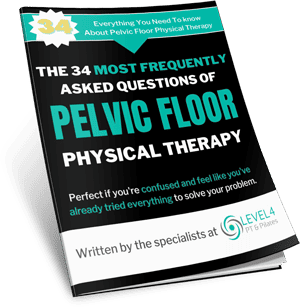We all know how important it is to get a good night’s sleep, but we usually think short term about how we might feel the next day, how it may affect our ability to exercise, or what it can do to your mood…but did you know that poor sleep habits are linked to an increased risk of Alzheimer’s or Dementia? With these 5 simple tips, you can improve poor sleeping habits today!

This can be explained by the cleansing affects of sleep…
One of the functions of sleep is to wash neurotoxins from the brain, including specific proteins that help for brain function. In a study (as quoted from CNN Aug. 2017) that analyzed poor sleepers and their brain waves, the result showed poor sleep caused the increase in Alzheimer’s markers in the brain but was unclear if the fact that these individuals’ brains were changing is what also caused them to continue having chronic poor sleep. Both are likely true — not getting enough sleep could increase Alzheimer’s risk and the factors that lead to Alzheimer’s also seem to make it hard to sleep. This is in regards to chronic sleep issues (especially during the middle-aged period of your life), not just an occasional night of bad sleep. For additional resources on Alzheimer’s, check out this resource on Tuck.com.
Here are some easy tips that may help you feel more relaxed and get the brain ready to settle down to sleep:
1. Eat lighter evening meals:
Improve Poor Sleeping Habits Tip #1: Finish dinner several hours (by 6 or 7 pm) before bedtime and avoid foods that cause indigestion. If you get hungry at night, snack on foods that (in your experience) won’t disturb your sleep, perhaps a light carbohydrate. Heavier foods like high protein meals should be eaten at least 3-4 hours before bed, so hold that steak or burger at 9 pm and go for an apple or piece of toast instead!
2. Watch your fluid intake before bed:
Improve Poor Sleeping Habits Tip #2: Drink enough fluid at night to keep from waking up thirsty—but not so much and so close to bedtime that you will be awakened by the need for a trip to the bathroom. Your bladder will also get used to the habit of getting up at night, so being lighter on the fluid intake will also help you train your bladder to stop the urge.
3. Consider a restorative Yoga class:
Improve Poor Sleeping Habits Tip #3: Regular exercise helps promote restful sleep if it is done at least 4-5 hours before you go to bed due to it’s affect on the hormone “cortisol” and it’s heightened alert it may give your mind, but an exception would be practicing “restorative Yoga”. This helps you slow down your brain activity and allow for complete relaxation. This is especially important for people who have difficulty “shutting their brain off” at night. Restorative yoga can be a calming hug for your over-stimulated mind. It may look like someone is taking a nap when they practice this, but once you get into the poses, you realize how challenging they can be. Over time with practice in a routine, you will learn how to drop into a place of stillness and be content and peaceful, quieting the mind in the present moment.
4. Take a warm shower before bed
Improve Poor Sleeping Habits Tip #4: Warming your body up with a hot shower an hour before bed and then stepping into cooler air will cause your body precipitously. Studies show that this rapid temperature decrease slows your metabolism faster and prepares your body for sleep. Warm water can also be very relaxing, so that helps, too. If you shower every night around the same time, making it part of a consistent bedtime routine, you’ll see the most sleep value from it, she adds. Then your body has an expectation of what’s coming next.
5. Lights off…including your cell phone!
Improve Poor Sleeping Habits Tip #5: How many of us use a cell phone for our alarm or scroll through our social media accounts before bed? Using an electronic device such as a phone or laptop can make it hard to fall asleep, because the particular type of light emanating from the screens of these devices is activating to the brain. Establish your bedtime routine without your phone or computer at least 15 minutes before bed! Consider using blackout curtains, eyeshades, earplugs, “white noise” machines, humidifiers, fans and other devices.
As you can see, sleep is more important to attain longevity and allow you to age gracefully! Consider these habits tonight and make a point to get into a bedtime routine… Goodnight.
- The Link Between Menopause and Back Pain - May 21, 2024
- 3 Proven Ways You Can Relieve Sciatic Pain While Sleeping - September 14, 2023
- Menopause and the Impact It Can Have On Your Weight - August 4, 2023


















